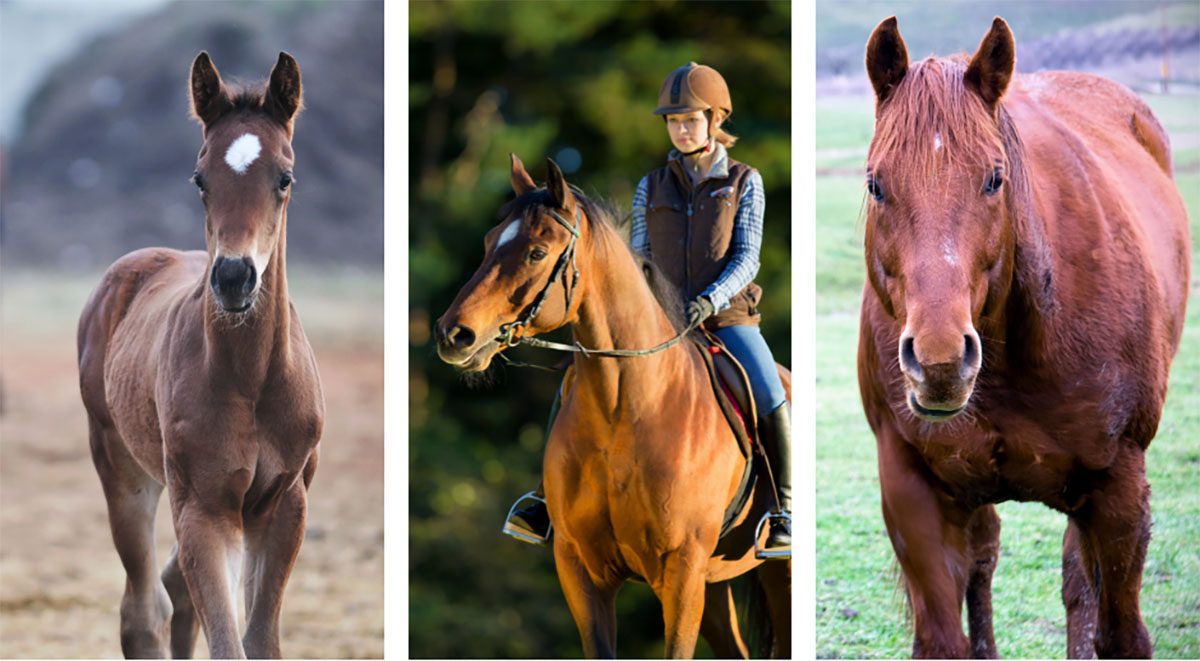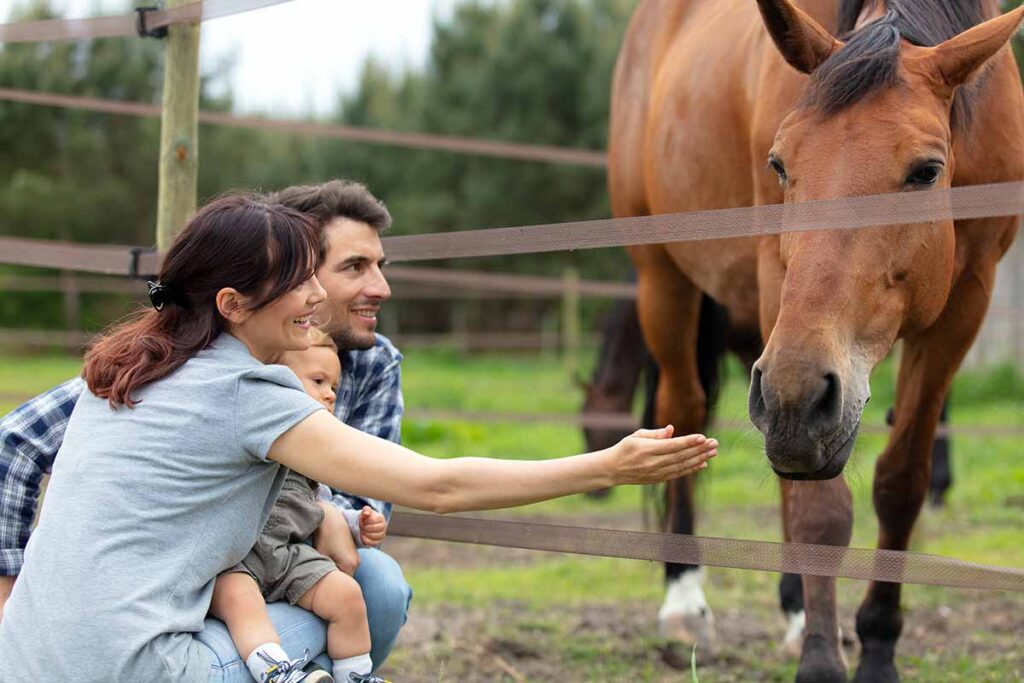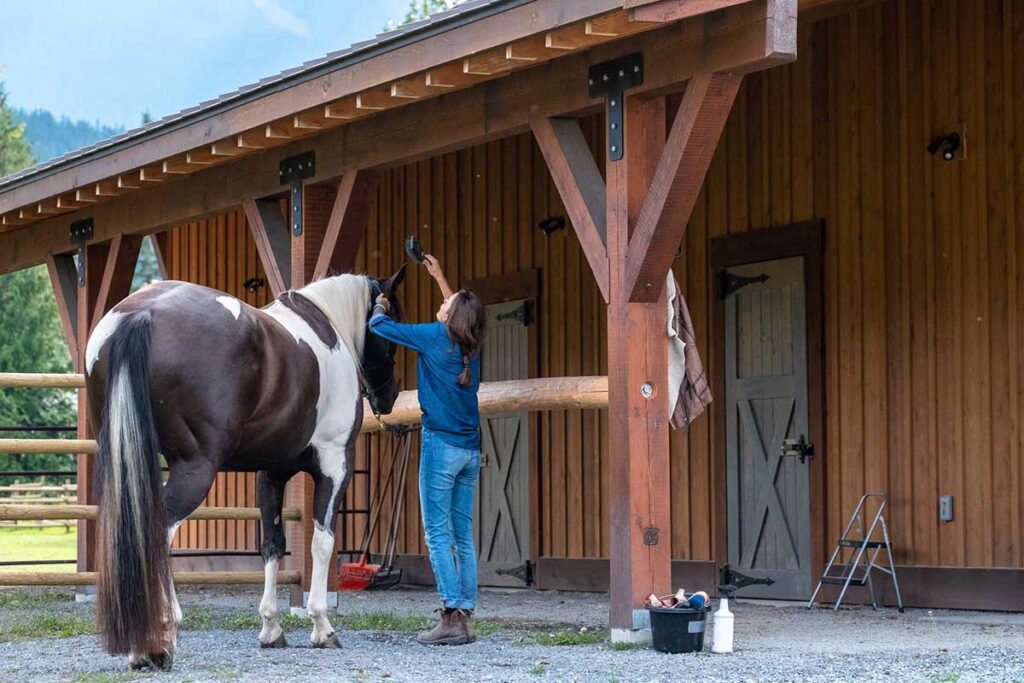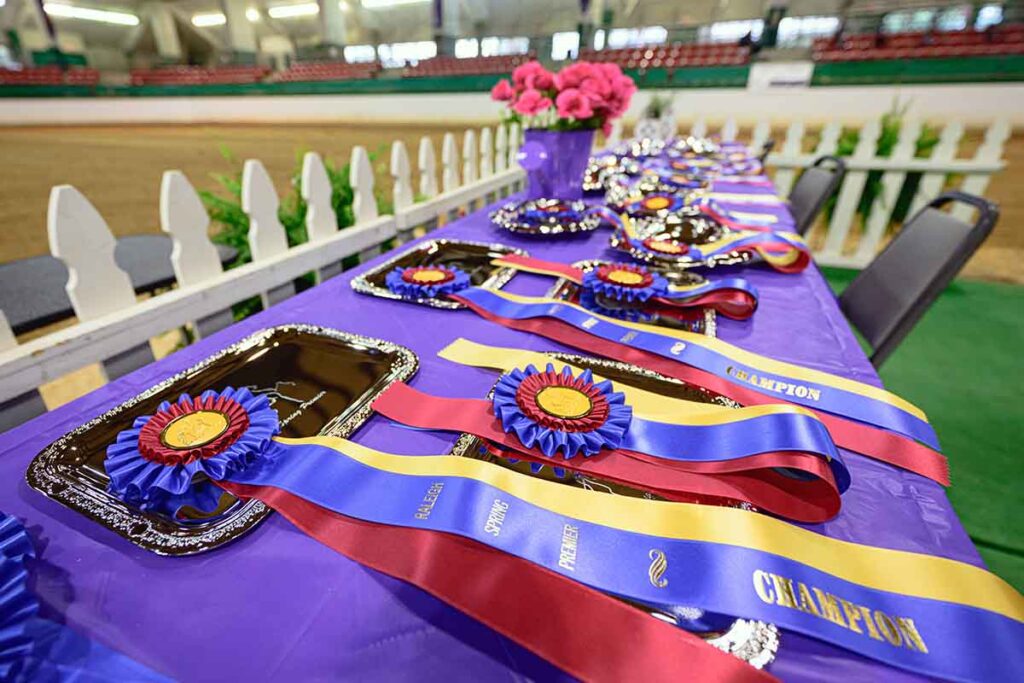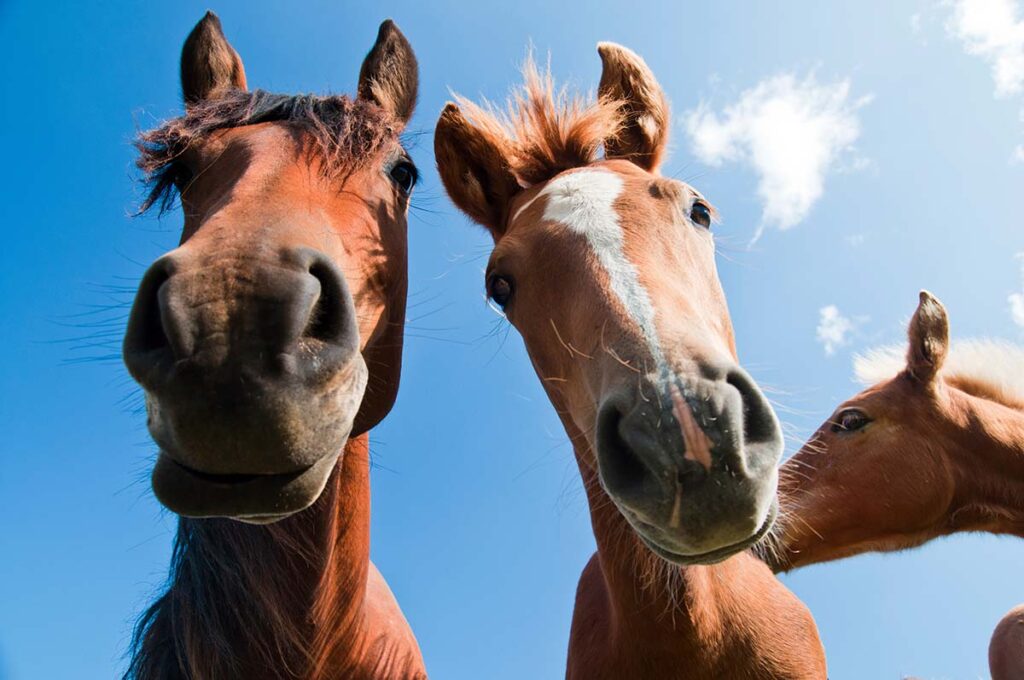Shopping for a horse, whether it’s your first horse or the one that advances you to the next level, is exciting. With so many horses for sale, it can be tempting to think each one you come across might be the perfect fit.
Age is an important consideration when horse-shopping. Be aware, however, that a horse can be badly behaved or poorly trained at any age. And a history of negative experiences can make even senior horses difficult to handle.
So, in addition to age, it’s important to ask about the horse’s background, temperament, and training. If you’re new to the horse world, ask a more experienced friend or a trainer you trust for help when looking at horses for sale.
With that information in mind, here are a few factors to consider when determining what age horse to buy.
Be Honest About Your Experience Level
Honestly assess your experience level before responding to a horse for sale ad. Consider how long you have been riding, your confidence level, and your horsemanship skills.
There’s a popular saying in the horse industry: Green + Green = Black & Blue. A green horse paired with a green rider can result in lots of bumps and bruises (or worse).
Young horses tend to be green horses. A horse under age 6 might give you more years to spend together, but if you’re inexperienced, you might not have the skills to handle and ride that horse safely.
Typically, horses within the 8- to 15-year-old range are good options for beginners or riders looking for an experienced equine partner. If you’re looking for a “been there, done that” mount, don’t discount an older horse—many are still fit and riding and competing well into their 20s.
Remember, every horse is an individual—some young horses can be good fits for inexperienced riders, and some older horses are green and better suited to someone with more experience.
Identify Your Goals

Knowing what you’d like to accomplish with your new steed will help you determine what age horse to buy. Start by dreaming big, and then compare your goals to your experience level to choose horses that best fit your aspirations. Goals for your new horse might include:
- Safely ride on trails, alone or in a group.
- Help me advance from a green or novice competition class to amateur, non-pro, or pro.
- Give me a project to “bring along” to replace my current horse as he ages out eventually.
- Be a broodmare so I can breed and raise a foal.
Know What Maintenance the Horse Needs
Experience and miles make good horses. A horse in his teens or early 20s tends to be more mellow and predictable and has the life experience behind him to spook less. Middle-aged competitive horses “know” their jobs and can be good partners for beginning riders or those looking to step up their skills in a given discipline.
Age and use might mean the horse needs more maintenance, such as nutritional supplements or joint injections, to remain healthy and comfortable. This is a natural part of the aging process and does not mean a horse is unsound. Many horses in this age group can perform their intended jobs comfortably and successfully. Just know your budget might need to include these occasional expenses.
Take-Home Message
Each equine age group comes with its own perks and challenges. Consider these when horse-shopping:
- 1-3 years old: You have the opportunity to bond with and shape this horse from an early age and enjoy a long relationship together. Young horses, however, require extensive training and can be unpredictable and more difficult to handle.
- 4-7 years old: These horses typically have some experience but are youthful and energetic enough to go in any direction you want. They still require patience, consistency, and training as they mature.
- 8-15 years old: Mature horses are often well-trained, dependable, and experienced in a certain riding discipline. However, they might have maintenance requirements and established habits that will be difficult to change.
- 16 years and older: Senior horses can be kind and patient teachers and companions because of their experience and temperament. They might require additional veterinary care as they age and might not be suitable for demanding physical activities.
Consider your lifestyle, experience, and what you hope to achieve with your horse when deciding what age horse to buy. Involve an experienced equestrian, veterinarian, or trainer in your decision-making process to ensure the horse’s age, health, and temperament match your capabilities and goals.
Related Reading:
- How Much Does it Cost to Buy a Horse?
- Prepurchase Exams for Horses: What You Need to Know
- How Much Does a Horse Cost Per Month?
Katie Navarra Bradley is a writer and author who covers horses, agriculture, and sustainability. She also partners with horses to deliver equine-assisted business and leadership coaching.
Are you enjoying this content? Sign up for My New Horse’s FREE newsletter to get the latest horse owner info and fun facts delivered straight to your inbox!

